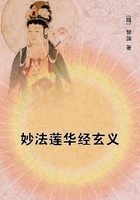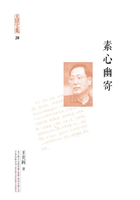Across the blue water of the tranquil bay, which it shelters from the open sea, rises Poseidon's sacred island, its peaks veiled in the sombre green of the pines. On this fair coast Hippolytus was worshipped. Within his sanctuary stood a temple with an ancient image. His service was performed by a priest who held office for life; every year a sacrificial festival was held in his honour; and his untimely fate was yearly mourned, with weeping and doleful chants, by unwedded maids. Youths and maidens dedicated locks of their hair in his temple before marriage. His grave existed at Troezen, though the people would not show it. It has been suggested, with great plausibility, that in the handsome Hippolytus, beloved of Artemis, cut off in his youthful prime, and yearly mourned by damsels, we have one of those mortal lovers of a goddess who appear so often in ancient religion, and of whom Adonis is the most familiar type. The rivalry of Artemis and Phaedra for the affection of Hippolytus reproduces, it is said, under different names, the rivalry of Aphrodite and Proserpine for the love of Adonis, for Phaedra is merely a double of Aphrodite. The theory probably does no injustice either to Hippolytus or to Artemis. For Artemis was originally a great goddess of fertility, and, on the principles of early religion, she who fertilises nature must herself be fertile, and to be that she must necessarily have a male consort. On this view, Hippolytus was the consort of Artemis at Troezen, and the shorn tresses offered to him by the Troezenian youths and maidens before marriage were designed to strengthen his union with the goddess, and so to promote the fruitfulness of the earth, of cattle, and of mankind. It is some confirmation of this view that within the precinct of Hippolytus at Troezen there were worshipped two female powers named Damia and Auxesia, whose connexion with the fertility of the ground is unquestionable. When Epidaurus suffered from a dearth, the people, in obedience to an oracle, carved images of Damia and Auxesia out of sacred olive wood, and no sooner had they done so and set them up than the earth bore fruit again. Moreover, at Troezen itself, and apparently within the precinct of Hippolytus, a curious festival of stone-throwing was held in honour of these maidens, as the Troezenians called them; and it is easy to show that similar customs have been practised in many lands for the express purpose of ensuring good crops. In the story of the tragic death of the youthful Hippolytus we may discern an analogy with similar tales of other fair but mortal youths who paid with their lives for the brief rapture of the love of an immortal goddess. These hapless lovers were probably not always mere myths, and the legends which traced their spilt blood in the purple bloom of the violet, the scarlet stain of the anemone, or the crimson flush of the rose were no idle poetic emblems of youth and beauty fleeting as the summer flowers. Such fables contain a deeper philosophy of the relation of the life of man to the life of naturea sad philosophy which gave birth to a tragic practice. What that philosophy and that practice were, we shall learn later on.
3. Recapitulation
WE can now perhaps understand why the ancients identified Hippolytus, the consort of Artemis, with Virbius, who, according to Servius, stood to Diana as Adonis to Venus, or Attis to the Mother of the Gods. For Diana, like Artemis, was a goddess of fertility in general, and of childbirth in particular. As such she, like her Greek counterpart, needed a male partner. That partner, if Servius is right, was Virbius. In his character of the founder of the sacred grove and first king of Nemi, Virbius is clearly the mythical predecessor or archetype of the line of priests who served Diana under the title of Kings of the Wood, and who came, like him, one after the other, to a violent end. It is natural, therefore, to conjecture that they stood to the goddess of the grove in the same relation in which Virbius stood to her; in short, that the mortal King of the Wood had for his queen the woodland Diana herself. If the sacred tree which he guarded with his life was supposed, as seems probable, to be her special embodiment, her priest may not only have worshipped it as his goddess but embraced it as his wife. There is at least nothing absurd in the supposition, since even in the time of Pliny a noble Roman used thus to treat a beautiful beech-tree in another sacred grove of Diana on the Alban hills. He embraced it, he kissed it, he lay under its shadow, he poured wine on its trunk. Apparently he took the tree for the goddess. The custom of physically marrying men and women to trees is still practised in India and other parts of the East. Why should it not have obtained in ancient Latium?
Reviewing the evidence as a whole, we may conclude that the worship of Diana in her sacred grove at Nemi was of great importance and immemorial antiquity; that she was revered as the goddess of woodlands and of wild creatures, probably also of domestic cattle and of the fruits of the earth; that she was believed to bless men and women with offspring and to aid mothers in childbed; that her holy fire, tended by chaste virgins, burned perpetually in a round temple within the precinct; that associated with her was a water-nymph Egeria who discharged one of Diana's own functions by succouring women in travail, and who was popularly supposed to have mated with an old Roman king in the sacred grove; further, that Diana of the Wood herself had a male companion Virbius by name, who was to her what Adonis was to Venus, or Attis to Cybele; and, lastly, that this mythical Virbius was represented in historical times by a line of priests known as Kings of the Wood, who regularly perished by the swords of their successors, and whose lives were in a manner bound up with a certain tree in the grove, because so long as that tree was uninjured they were safe from attack.
Clearly these conclusions do not of themselves suffice to explain the peculiar rule of succession to the priesthood. But perhaps the survey of a wider field may lead us to think that they contain in germ the solution of the problem. To that wider survey we must now address ourselves. It will be long and laborious, but may possess something of the interest and charm of a voyage of discovery, in which we shall visit many strange foreign lands, with strange foreign peoples, and still stranger customs. The wind is in the shrouds: we shake out our sails to it, and leave the coast of Italy behind us for a time.















